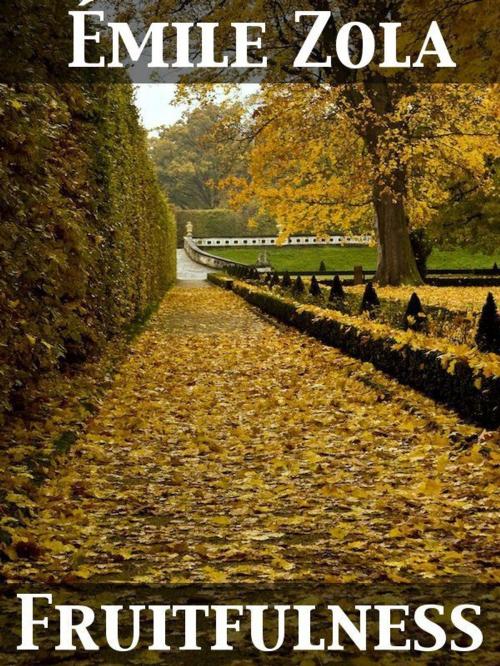| Author: | Ernest Alfred Vizetelly, Émile Zola | ISBN: | 9782819940005 |
| Publisher: | Release Date: November 27, 2011 | Publication: | November 27, 2011 |
| Imprint: | pubOne.info | Language: | English |
| Author: | Ernest Alfred Vizetelly, Émile Zola |
| ISBN: | 9782819940005 |
| Publisher: | Release Date: November 27, 2011 |
| Publication: | November 27, 2011 |
| Imprint: | pubOne.info |
| Language: | English |
“FRUITFULNESS” is the first of a series of four works in which M. Zola proposes to embody what he considers to be the four cardinal principles of human life. These works spring from the previous series of The Three Cities: “Lourdes, ” “Rome, ” and “Paris, ” which dealt with the principles of Faith, Hope, and Charity. The last scene in “Paris, ” when Marie, Pierre Froment's wife, takes her boy in her arms and consecrates him, so to say, to the city of labor and thought, furnishes the necessary transition from one series to the other. “Fruitfulness, ” says M. Zola, “creates the home. Thence springs the city. From the idea of citizenship comes that of the fatherland; and love of country, in minds fed by science, leads to the conception of a wider and vaster fatherland, comprising all the peoples of the earth. Of these three stages in the progress of mankind, the fourth still remains to be attained. I have thought then of writing, as it were, a poem in four volumes, in four chants, in which I shall endeavor to sum up the philosophy of all my work
“FRUITFULNESS” is the first of a series of four works in which M. Zola proposes to embody what he considers to be the four cardinal principles of human life. These works spring from the previous series of The Three Cities: “Lourdes, ” “Rome, ” and “Paris, ” which dealt with the principles of Faith, Hope, and Charity. The last scene in “Paris, ” when Marie, Pierre Froment's wife, takes her boy in her arms and consecrates him, so to say, to the city of labor and thought, furnishes the necessary transition from one series to the other. “Fruitfulness, ” says M. Zola, “creates the home. Thence springs the city. From the idea of citizenship comes that of the fatherland; and love of country, in minds fed by science, leads to the conception of a wider and vaster fatherland, comprising all the peoples of the earth. Of these three stages in the progress of mankind, the fourth still remains to be attained. I have thought then of writing, as it were, a poem in four volumes, in four chants, in which I shall endeavor to sum up the philosophy of all my work















